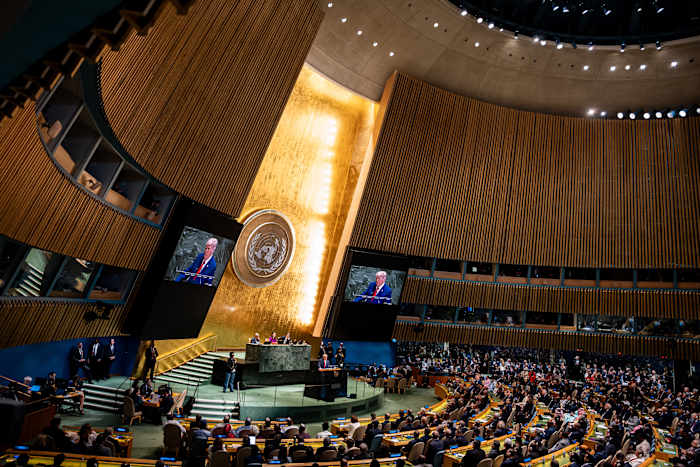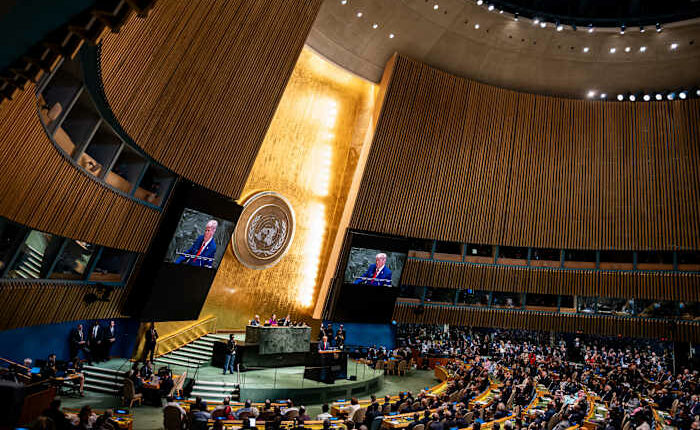Share this @internewscast.com

NEW YORK – On Thursday, the Trump administration reached out to multiple nations to discuss its perspective that the global asylum system, established post-World War II, is being widely misused and encouraged these countries to join the United States in addressing this migration issue.
Deputy Secretary of State Christopher Landau spearheaded this meeting on the sidelines of the U.N. General Assembly with officials from Kosovo, Bangladesh, Liberia, and Panama. This gathering was aimed at understanding the preliminary interest and support for what may become a substantial overhaul of the asylum framework.
In his opening statement, Landau said, “If there are hundreds of thousands of individuals falsely claiming asylum, it threatens the integrity of the genuine asylum system.” He stressed that pointing out potential abuse in the process is not an act of xenophobia, nor does it reflect poorly on one’s character.
The U.S. outlined that reforms should, at a minimum, consider asylum as a temporary measure and stipulate that those seeking refuge should ultimately return to their home countries. The Trump administration also clarified that there is no entitlement to seek asylum in a preferred nation and decisions should be made by individual countries rather than through international bodies.
Human rights groups watched from the sidelines with unease.
Bill Frelick, director of refugee and migrant rights at Human Rights Watch, described the U.S. proposal as potentially initiating a significant dismantling of the current global refugee system. He criticized the proposal for not respecting the foundational principle that individuals should not be deported to places where they may face persecution.
Since 2017, the U.S. has been the primary destination for asylum-seekers, far outpacing Germany, which ranks second, according to 2024 data from the U.N. refugee agency. President Donald Trump and his supporters argue that the system is being exploited by individuals with weak claims to gain entry to the country, allowing them to obtain work permits while their cases languish in an overwhelmed immigration court system.
The U.S. adheres to a global asylum system first laid out in the 1951 Refugee Convention and enshrined into U.S. law in 1980.
People seeking refuge in the U.S. are able to apply for asylum once they are on American soil, regardless of whether they came legally. To qualify, they have to show a fear of persecution in their own country because of specific reasons, such as their race, religion, nationality, membership in a particular social group or political opinion. Refugees meet a similar standard by applying abroad.
Once someone is granted asylum, they can’t be deported, they can work legally, bring immediate family, apply for legal residency and eventually seek U.S. citizenship. It offers a permanent future in the U.S.
The number of people coming to the U.S.-Mexico border seeking asylum has ballooned in recent years, overloading immigration courts and leading to cries that the system is being abused by people who are coming for jobs or other reasons that don’t meet the standards for asylum.
Facing mounting criticism over the large numbers of migrants coming to the border, the Biden administration took steps that severely curtailed asylum access.
The first day in office, Trump signed an order declaring an invasion at the southern border and said he was “suspending the physical entry” of migrants and their ability to seek asylum until he decides it is over. Immigration advocates have sued, and the issue is before the courts.
___
Spagat reported from San Diego. Associated Press writers Matthew Lee in New York and Rebecca Santana in Washington contributed to this report.
Copyright 2025 The Associated Press. All rights reserved. This material may not be published, broadcast, rewritten or redistributed without permission.










